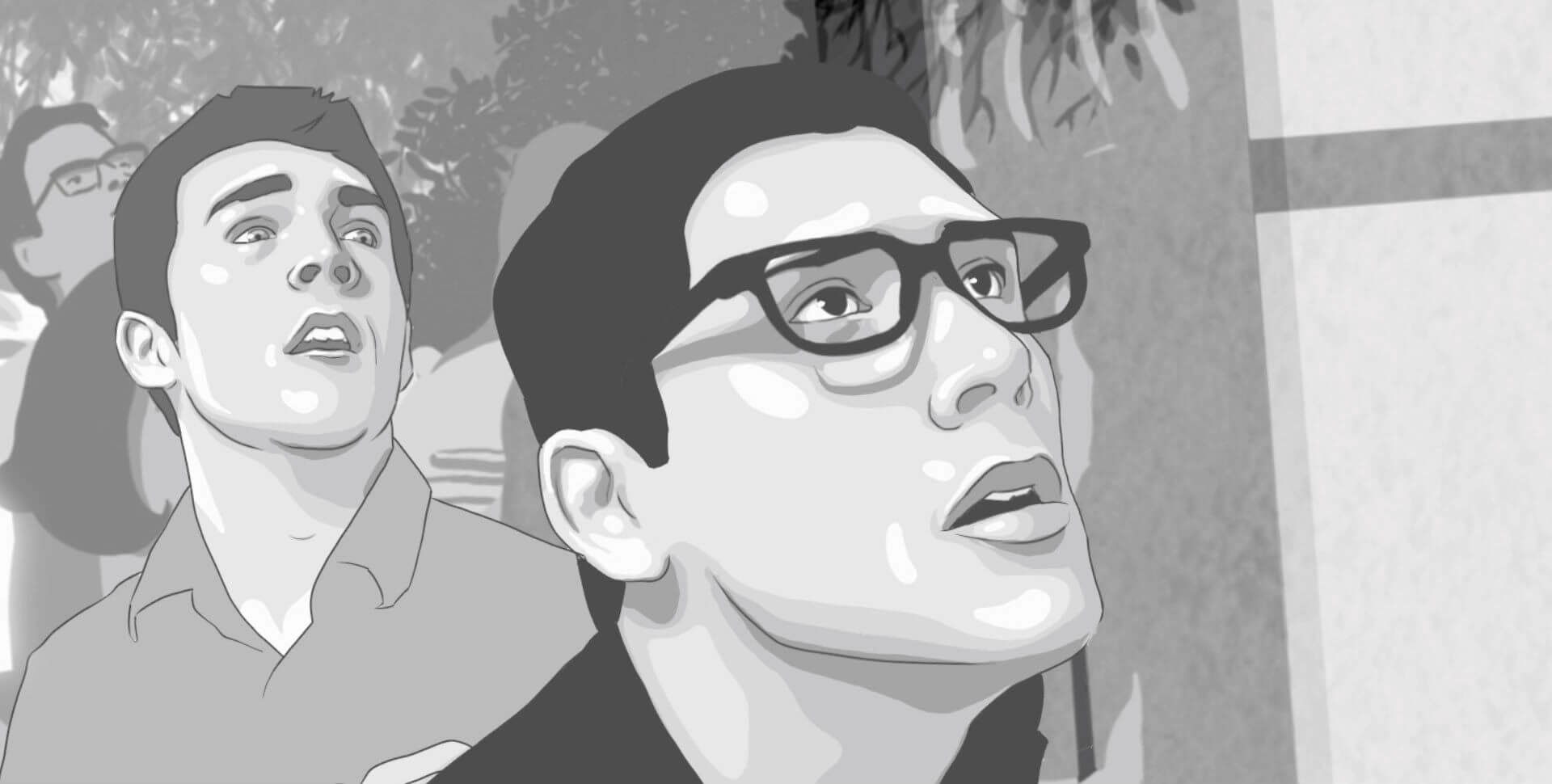Tower [2016], based entirely on first-hand accounts, paints a multifaceted picture of the 1966 mass shooting at University of Texas at Austin.
Art as Language… Days after the shooting, when dialogue was reportedly nonexistent, a survivor visits another in the hospital and brings her a painting. “‘How did it make you feel?’” another interviewee recalls being asked in the wake of the shooting. “How would I describe the colors of the rainbow to a person who was blind? I couldn’t because there are no words.” Tower is full of words – dialogue, narration, interviews, headlines – but it’s rarely the words that transport the viewer to Austin, Texas on August 1, fifty years ago. It’s the groundbreaking visual world Director Keith Maitland uses these words to unfurl. Tower is a visceral thing, written like a high strung thriller, with every sentence drawn from first-hand accounts, oscillating seamlessly between grainy archival footage of the event, gorgeous rotoscope animation of scenes recreated, and haunting interviews with the students, heroes, and Texans (and, Texan student heroes) who were there. The result is a documentary, unlike anything you’ve seen: a relentless action movie, a passionate investigation, and an impressionistic, life-affirming display of the good that can rise in the face of unspeakable evil.
Another America… Tower refuses to let the country’s first mass school shooting fade into futile memory. Instead, it all but recreates the day – painfully, subtly – the image and feeling of a different America: a student walks through a hallway with a Spiderman comic tucked under his arm, two young men “listen to the top forty and play chess” in a dorm room, a worker searches for a payphone to call his wife, a display for Truman Capote’s In Cold Blood looms in the background of the campus co-op. The film is as much a testament to its heroes as it is a portrait of a changing world, of a smaller, squeakier America, in one tragic day, in ninety-six horrific minutes, becoming an America that’s devastatingly more familiar. As the shots draw to a close and the students and citizens gather on campus, one man recalls what they were all, in their stunned silence, thinking: “What in the world has happened to my world?”
Given its difficult subject matter, Tower threatens to be a documentary that’s hard to recommend, but instead, Maitland’s sheer artistic inventiveness in telling this story and his tangible affection for the real people involved make it one that’s impossible to deny, a must-see cinematic work for anyone who loves film, America, or, frankly, humanity.

